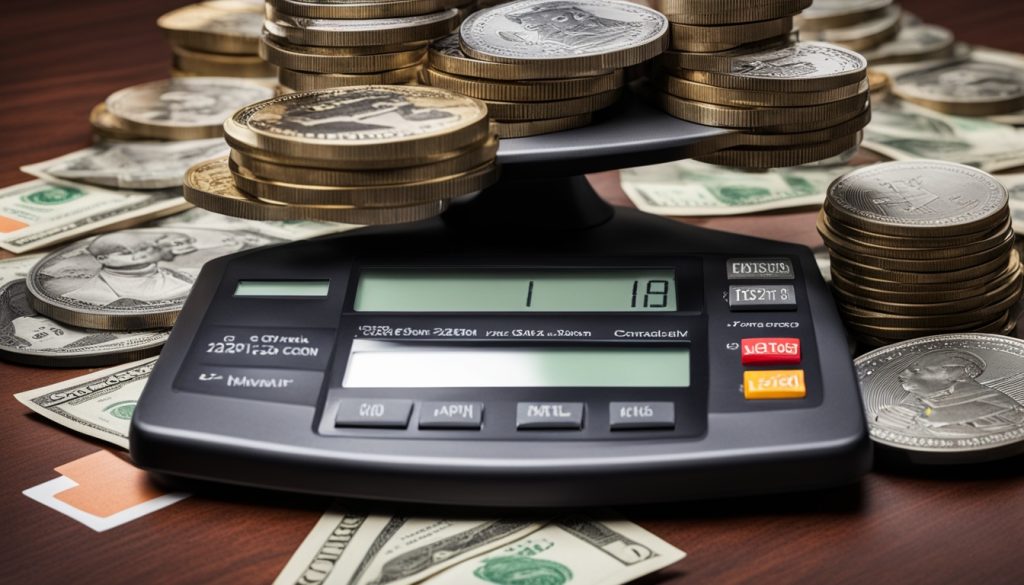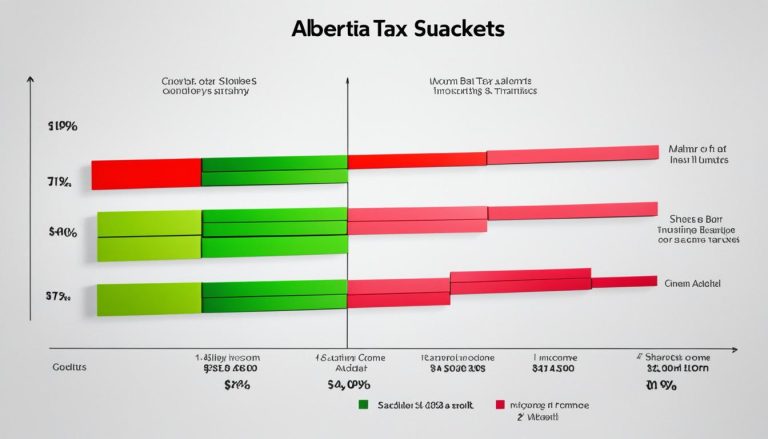Did you know that the Canadian cryptocurrency market is estimated to be worth over $5.5 billion? As the industry continues to grow, the Canada Revenue Agency (CRA) has been working diligently to ensure that taxpayers report their crypto-asset transactions accurately. However, for those looking to cash out their cryptocurrencies, the question remains: is there a way to do so without paying taxes in Canada?
The cryptocurrency industry has seen significant growth and expansion since 2008, leading to the Canada Revenue Agency (CRA) continuously updating its tax guidance to address the evolving nature of crypto-assets. Cryptocurrencies, utility tokens, security tokens, and non-fungible tokens (NFTs) are all considered crypto-assets by the CRA. Taxpayers who have acquired or disposed of crypto-assets must keep adequate books and records to support each transaction, including the number of units, type of crypto-asset, date and time of each transaction, value in Canadian dollars, description of the transaction, and the addresses associated with each digital wallet used. The CRA requires taxpayers to determine the fair market value of their crypto-assets for tax reporting purposes, which can be done using a reasonable method consistently applied.
While there is no legal way to completely avoid paying taxes on cryptocurrency transactions in Canada, there are several strategies that Canadian taxpayers can use to reduce their crypto tax liability. In this article, we’ll explore the intricacies of cryptocurrency taxation in Canada and uncover the most effective ways to cash out your crypto without breaking the bank.
Understanding Cryptocurrency Taxation in Canada
The Canada Revenue Agency (CRA) recognizes a variety of crypto-assets, including cryptocurrencies, utility tokens, security tokens, and non-fungible tokens (NFTs). As a Canadian taxpayer, it is crucial to understand the different types of crypto-assets and their tax implications.
Crypto-Assets: Definition and Types
The CRA defines crypto-assets as digital representations of value that can be traded, transferred, or used for payment or investment purposes. This includes cryptocurrencies like Bitcoin and Ethereum, as well as utility tokens, security tokens, and NFTs. Each type of crypto-asset may have different tax consequences, depending on its specific characteristics and how it is used.
Keeping Books and Records for Crypto Transactions
Taxpayers who have acquired or disposed of crypto-assets must maintain detailed records of each transaction, including the number of units, type of crypto-asset, date and time, value in Canadian dollars, description of the transaction, and the addresses associated with each digital wallet used. Accurate record-keeping is essential for properly reporting crypto-asset transactions to the CRA.
Determining the Value of Crypto-Assets
When reporting the value of crypto-assets for tax purposes, the CRA generally accepts the fair market value, which can be calculated using a reasonable and consistently applied method. This could include the exchange rate from the same exchange broker or an average of high/low/open/close values across multiple high-volume exchange brokers.

Income Tax Considerations for Crypto Transactions
The Canadian Revenue Agency (CRA) considers the disposition of a crypto-asset a taxable event, which may result in either business income (or loss) or a capital gain (or loss). The determination of whether a crypto-asset transaction is on account of business income or capital gain depends on several factors, such as the frequency of transactions, period of ownership, knowledge of crypto-asset markets, time spent, financing, and advertising.
Business Income or Capital Gain
If the crypto-asset transaction is deemed to be a business activity, the full amount of the profits (or loss) must be reported in the taxpayer’s tax return. On the other hand, if the disposition is on account of capital, only 50% of the capital gain is included in the taxpayer’s taxable income, and capital losses can be used to offset capital gains.
Reporting Business Income from Crypto Dispositions
Taxpayers who have engaged in crypto-related business activities must report the full amount of their profits (or losses) on their tax return. This includes income from activities such as mining, trading, lending, or providing crypto-related services.
Reporting Capital Gains/Losses from Crypto Dispositions
If the crypto-asset transaction is considered a capital disposition, only 50% of the capital gain is included in the taxpayer’s taxable income. Additionally, capital losses can be used to offset capital gains, either in the current year or carried forward to future years, to reduce the overall tax liability.

How to Cash Out Crypto Without Paying Taxes Canada?
While there is no legal way to completely avoid paying taxes on cryptocurrency transactions in Canada, there are several strategies that Canadian taxpayers can utilize to reduce their crypto tax liability. The Canadian government, through the Canada Revenue Agency (CRA), has the capability to track crypto transactions, and cryptocurrency exchanges are required to report transactions exceeding $10,000 to the CRA.
Even for smaller transactions, exchanges must collect customer information and can be compelled to disclose this information upon request. However, there are legal strategies that Canadian taxpayers can use to reduce their crypto tax liability, such as holding cryptocurrencies long-term, harvesting losses, utilizing tax-advantaged accounts (TFSA/RRSP), taking profits in low-income years, donating crypto to charity, and taking out loans using crypto as collateral.

By understanding the tax implications and utilizing these legal strategies, Canadian crypto investors can minimize their tax burden while staying within the bounds of the law. It is important to note that the CRA has the capability to track crypto transactions, and taxpayers must remain compliant by accurately reporting their crypto-asset activities and maintaining detailed records.
Strategies to Reduce Crypto Tax Liability
One of the easiest ways to reduce crypto tax liability in Canada is to hold your cryptocurrency long-term. There is no tax for simply holding cryptocurrency, and you will only be taxed when you dispose of your crypto, such as when you sell it for Canadian dollars or trade it for another cryptocurrency. Another strategy is to harvest your losses by selling your cryptocurrency at a loss, as 50% of the value of your capital losses can be used to offset taxable capital gains from cryptocurrencies, stocks, and other investments.
Additionally, Canadian taxpayers can use tax-advantaged accounts like Tax-Free Savings Accounts (TFSAs) and Registered Retirement Savings Plans (RRSPs) to grow their crypto holdings without paying capital gains tax, although they cannot directly hold cryptocurrencies in these accounts.

Additional Tax-Saving Opportunities
In addition to the strategies mentioned in the previous section, Canadian taxpayers can also consider taking profits in low-income years, donating cryptocurrency to charity, and taking out loans using crypto as collateral. These supplementary approaches can further optimize your cryptocurrency tax planning and minimize your overall tax burden.
Take Profits in Low-Income Years
Taking profits in low-income years can be a savvy move for Canadian crypto investors. The lower your taxable income, the less you’ll pay in taxes on your cryptocurrency transactions. By strategically realizing gains during periods of reduced earnings, you can significantly reduce your crypto tax liability and keep more of your hard-earned profits.
Donate Cryptocurrency to Charity
Donating cryptocurrency to a registered Canadian charity is considered a tax-deductible contribution. However, it’s important to be aware of the rules surrounding the timing of the donation and the valuation of the crypto asset. Properly documenting and structuring these charitable gifts can provide valuable tax benefits while also supporting important causes.
Take Out a Loan Using Crypto as Collateral
Instead of directly disposing of your cryptocurrency holdings, consider taking out a loan using your crypto as collateral. This approach is not considered a taxable event, allowing you to access the value of your assets without incurring immediate capital gains or income tax liabilities. By leveraging your crypto holdings, you can potentially meet your financial needs while deferring tax obligations.
Crypto Tax Compliance and Reporting
While cryptocurrency offers a degree of anonymity, the Canadian government, through the Canada Revenue Agency (CRA), has the capability to trace crypto transactions. Cryptocurrency exchanges operating in Canada are required to report transactions exceeding $10,000 to the CRA, and they are also obligated to collect customer information, which they may be required to disclose upon request.
CRA’s Ability to Track Crypto Transactions
As a result of these reporting requirements, it is essential for Canadian taxpayers to remain compliant by thoroughly reporting their crypto transactions. Failure to do so could lead to significant penalties and potential legal consequences.
Reporting Requirements and Filing Forms
To ensure compliance, Canadian taxpayers must file the appropriate tax forms when reporting their crypto-asset activities. This includes submitting Schedule 3 for capital gains, Form T2125 for business income, and Form T1135 if the total cost of your specified foreign property, including cryptocurrency, is more than $100,000. Maintaining accurate records and working closely with tax professionals can help ensure you meet all reporting requirements and minimize your crypto tax liability.
Crypto Mining, Staking, and Lending
The Canada Revenue Agency (CRA) recognizes that crypto mining, staking, and lending activities can be considered either personal (i.e., a hobby) or business activities, and evaluates these on a case-by-case basis. However, the CRA has indicated that it generally considers most crypto mining tax canada and crypto staking tax canada operations to be business activities, which are subject to business income tax.
Tax Treatment of Mining and Staking Rewards
Mined crypto is generally not taxable at the time of receipt, but when the mined tokens are sold, the usual tax rules for crypto mining tax canada or capital gains apply. The cost basis for mined crypto is typically considered to be zero, so the full market value of the crypto at the time of disposition is subject to tax.
Similarly, rewards earned from crypto staking tax canada are also generally considered business income and are taxable when the staked tokens are sold or exchanged. The cost basis for staked crypto is also typically zero, leading to the full market value being subject to tax upon disposition.
In contrast, crypto lending tax canada activities may be treated differently, as the interest earned from lending crypto may be considered investment income rather than business income, depending on the specific circumstances. Taxpayers should consult with a tax professional to ensure they are properly reporting and paying taxes on their crypto-related activities.
Utility Tokens and Other Crypto Assets
The Canada Revenue Agency (CRA) has not issued specific guidance on the tax treatment of various forms of crypto-assets, such as utility tokens, security tokens, and non-fungible tokens (NFTs). However, the CRA has indicated that any gains from the disposition of these types of tokens would be subject to the same tax rules as other cryptocurrency transactions, either as business income or capital gains, depending on the circumstances.
Taxpayers should maintain accurate records and work with tax professionals to ensure they are properly reporting and paying taxes on their crypto-asset transactions. The lack of clear CRA guidance on the taxation of utility tokens, security tokens, and NFTs highlights the importance of staying up-to-date with the evolving crypto tax landscape in Canada.
| Crypto-Asset Type | Tax Implications |
|---|---|
| Utility Tokens | Gains from the disposition of utility tokens may be taxed as business income or capital gains, depending on the specific circumstances. |
| Non-Fungible Tokens (NFTs) | Gains from the sale or other disposition of NFTs are generally subject to the same tax rules as other crypto-asset transactions, with potential treatment as business income or capital gains. |
| Security Tokens | Transactions involving security tokens may be taxed as business income or capital gains, depending on the characteristics of the token and the taxpayer’s specific circumstances. |
Conclusion
In conclusion, while there is no legal way to completely avoid paying taxes on cryptocurrency transactions in Canada, there are several strategies that Canadian taxpayers can utilize to reduce their crypto tax liability. These include holding cryptocurrencies long-term, harvesting losses, utilizing tax-advantaged accounts, taking profits in low-income years, donating crypto to charity, and taking out loans using crypto as collateral. However, it is crucial to remember that the Canada Revenue Agency (CRA) has the capability to track crypto transactions, and taxpayers must remain compliant by accurately reporting their crypto-asset activities and maintaining detailed records.
By understanding the tax implications and employing legal strategies, Canadian crypto investors can minimize their tax burden while staying within the bounds of the law. Strategies such as holding crypto long-term, harvesting losses, and using tax-advantaged accounts can effectively reduce the tax liability on cryptocurrency transactions. Additionally, options like taking profits in low-income years, donating crypto to charity, and taking out loans using crypto as collateral can provide further opportunities to manage the tax consequences of crypto-asset activities.
Ultimately, the key to navigating the crypto tax landscape in Canada is to stay informed, maintain meticulous records, and work closely with tax professionals to ensure compliance and maximize legal tax-saving opportunities. By adopting a proactive approach, Canadian crypto investors can minimize their tax burden and continue to participate in the dynamic and evolving cryptocurrency market.
FAQ
1. How do I avoid paying taxes on cryptocurrency in Canada?
There is no legal way to completely avoid paying taxes on cryptocurrency transactions in Canada. The Canada Revenue Agency (CRA) has the capability to track crypto transactions, and cryptocurrency exchanges are required to report transactions exceeding $10,000. However, there are legal strategies that Canadian taxpayers can use to reduce their crypto tax liability, such as holding cryptocurrencies long-term, harvesting losses, utilizing tax-advantaged accounts (TFSA/RRSP), taking profits in low-income years, donating crypto to charity, and taking out loans using crypto as collateral.
2. Can the CRA track my cryptocurrency transactions?
Yes, the CRA has the capability to trace cryptocurrency transactions in Canada. Cryptocurrency exchanges operating in Canada are required to report transactions exceeding $10,000 to the CRA, and they are also obligated to collect customer information, which they may be required to disclose upon request.
3. Do I have to pay tax if I withdraw my crypto?
Yes, the CRA considers a disposition of a cryptocurrency to be a taxable event, which may result in business income (or loss) or a capital gain (or loss). The full amount of the profits (or loss) must be reported in the taxpayer’s tax return if the transaction is considered business income, or 50% of the capital gain is included in the taxpayer’s taxable income if the disposition is on account of capital.
4. How do I legally cash out my cryptocurrency in Canada?
There are a few legal ways to cash out your cryptocurrency in Canada without incurring significant tax liability. Some strategies include holding your cryptocurrency long-term, harvesting losses, utilizing tax-advantaged accounts (TFSA/RRSP), taking profits in low-income years, donating crypto to charity, and taking out loans using crypto as collateral.
5. Does Canada have cryptocurrency ATMs?
Yes, Canada does have cryptocurrency ATMs, which allow users to convert their cryptocurrency to cash. However, these ATMs may charge fees for the service, and users may still be subject to capital gains or business income tax on any profits made from the cryptocurrency transactions.
6. Do I need ID to use a Bitcoin ATM in Canada?
Yes, most Bitcoin ATMs in Canada require users to provide identification, such as a driver’s license or passport, to comply with anti-money laundering and know-your-customer regulations. The amount of information required may vary depending on the specific ATM and the transaction amount.
7. How much do Bitcoin ATMs charge in Canada?
The fees charged by Bitcoin ATMs in Canada can vary, but they typically range from 5% to 15% of the transaction amount. Some ATMs may also have additional fees, such as a flat rate or a percentage-based withdrawal fee.




